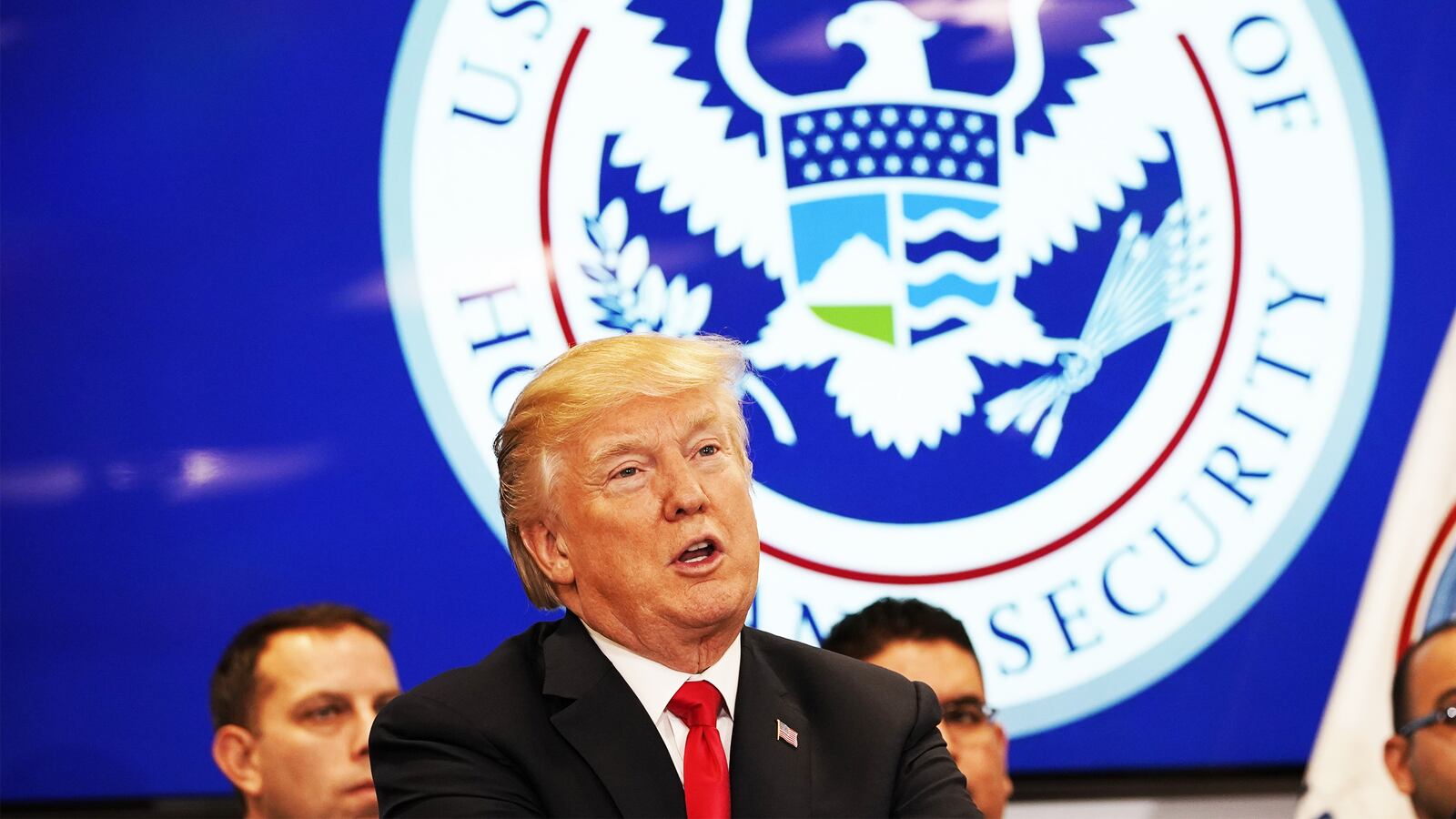The domestic and emotional abuse allegations arrayed against former White House Staff Secretary Rob Porter by two ex-wives has raised a number of questions for this administration.
Among them is how someone with Porter’s background was able to actually do his job? Porter, after all, was tasked with handling some of the most critical information that made its way to the president desk. But the White House said he was still operating with only an “interim security clearance,” as the FBI’s investigation into his background was still ongoing after more than one year on the job.
How could this persist more than one year after the president took office? The answer appears to be that the White House, for reasons that may or may not be based in good faith, is eviscerating the distinction between an interim security clearance and an adjudicated security clearance when it suits their political or functional needs.
To understand the world of security clearances, there are a few simple points that first need to be made clear. Security clearances are entirely a creation of the executive branch and the president is the ultimate constitutional arbiter of who can be granted one. The process for evaluating and adjudicating individuals for a security clearance is derived from executive order. President Clinton’s Executive Order 12968 established uniform policies to apply government-wide, and Presidents Bush and Obama amended those policies during their respective administrations.
Congress’ role in the context of security clearances has been limited to oversight. The judiciary has largely been unwilling to involve itself in the process, with limited and narrow exceptions for cases where constitutional procedural rights were implicated.
Interim security clearances were the necessary byproduct of the need to enable individuals to begin work in a classified position on tasks that required immediate attention. The security clearance background investigation process can easily take months, depending upon the level of access to which the person will be granted and the number of concerning issues that emerge about their background. Interim security clearances were designed to make sure those bureaucratic delays did not deprive the government of the use of an individual with valuable skill sets.
Granting an interim security clearance is typically done only after the investigating agency has taken the initial steps in the process. Any applicant for a security clearance must first fill out the lengthy and invasive Standard Form 86 questionnaire, as well as be subject to credit checks and criminal history checks. If an investigator reviews this initial paperwork and does not identify any significant red flags or security concerns, then an individual for whom interim access has been specifically requested can be granted it in that context.
An interim clearance, however, is just that; “interim” access. It is not designed to last forever. It is only supposed to remain in place so long as the background investigation has not subsequently identified adverse or derogatory information that would raise concerns about the individual holding access to classified information. Agency guidelines provide instructions for investigators and adjudicators on how to handle situations where permitting continued interim access is no longer appropriate.
This, however, is where the rubber meets the road; those guidelines are only advisory and can be ignored if deemed necessary. With Porter and Jared Kushner, media reports indicate that their respective background investigations identified concerning, adverse information during the last year and that the White House was made aware of those concerns.
For an ordinary rank and file government employee or contractor, discovery of that information would usually have resulted in the withdrawal of the interim security clearance pending completion of the investigation and a final adjudication on the clearance itself. If the final adjudication was favorable, the individual could return to work and resume their job. If the final adjudication was negative, the individual would be able to exercise their administrative appeal rights afforded by way of executive order.
That such action was apparently not taken with Porter, and so far has apparently not taken place with respect to Kushner, speaks to a larger concern about how the Trump administration is managing the security clearance process for White House personnel.
Strictly speaking, there is nothing to prevent the White House from letting the investigation into Kushner’s security clearance continue on indefinitely and for him to continue his work with an interim security clearance for however long he remains working at the White House. If the White House—and, specifically, President Trump—want Kushner to continue to maintain access to classified information, there is no other part of the U.S. government that can intervene and overrule them.
This type of deliberate bureaucratic obfuscation may technically be legal but it raises significant national security concerns. The security clearance investigation process is meant to identify risks that would preclude affording an individual the sacred privilege of access to classified information. Those risks can be professional (past history of work misconduct or heightened exposure to foreign influence) or personal (drug or alcohol issues, financial problems, or criminal behavior). The default position is always that, when push comes to shove, the national security interests of the U.S. government trump the interests of the applicant for a clearance.
By ignoring apparent security risks associated with individuals such as Porter (history of alleged domestic abuse) and Kushner (possibly deliberate falsification of security clearance forms and extensive foreign financial connections), the White House is unnecessarily exposing the Nation’s national security interests to potential harm.
If White House staff such as Kushner are going to continue to be afforded access to classified information, let that determination be done on the substantive merits in reliance upon the entire factual record. To do otherwise is to render the entire vetting process irrelevant.
Bradley P. Moss is a partner at the Washington, D.C. Law Office of Mark S. Zaid, P.C., where he has represented countless individuals (including whistleblowers) serving within the intelligence community, and is also the deputy executive director of the James Madison Project, through which he has represented media outlets such as Politico, Gawker, Daily Caller, and The Daily Beast in FOIA lawsuits against the Bush, Obama, and Trump administrations.






